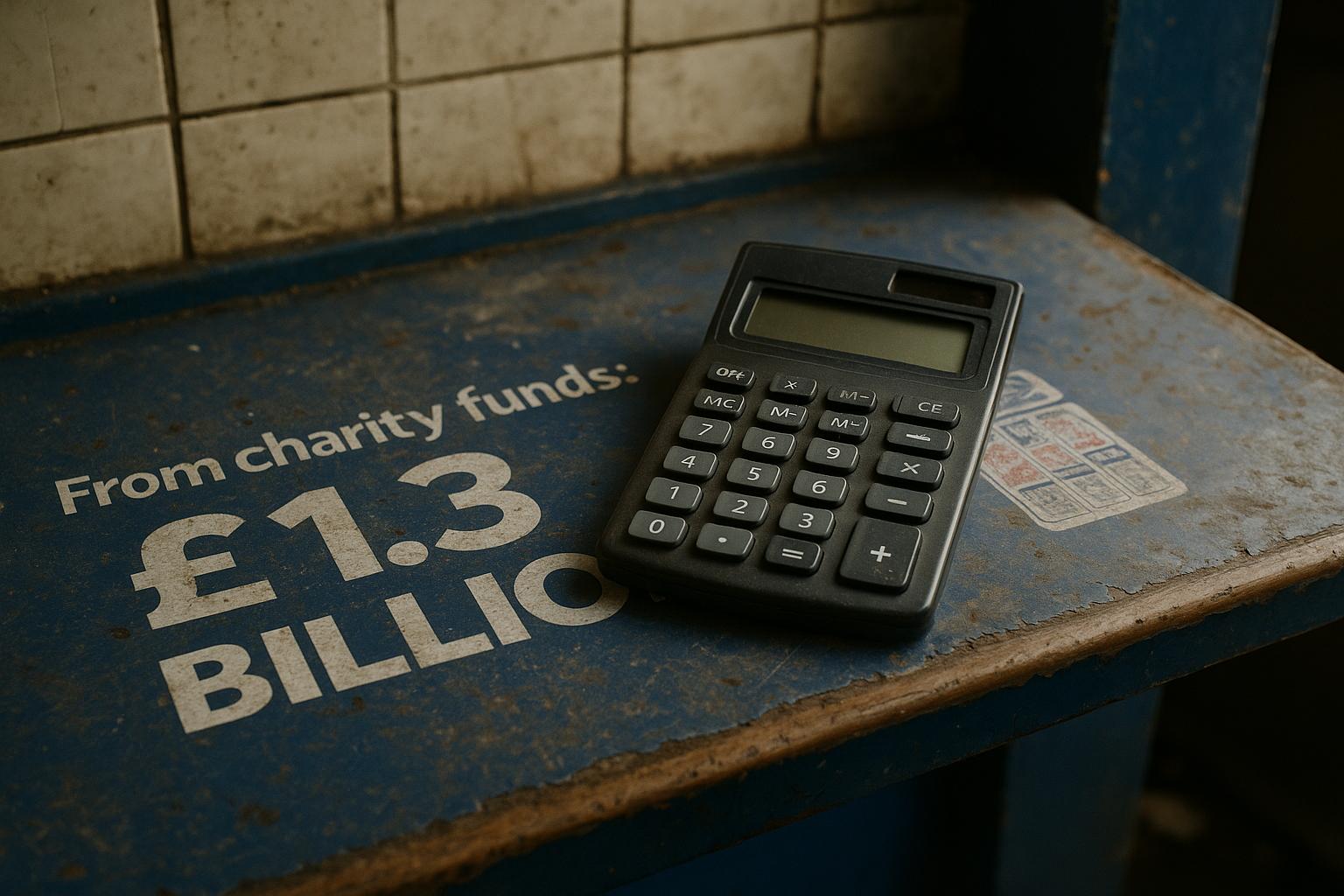A High Court case involving former media mogul and ex-porn baron Richard Desmond threatens to hit funding for good causes linked to the UK National Lottery by as much as £1.3 billion. Desmond, who once owned pornographic magazines and adult TV channels, is seeking substantial damages from the government-run Gambling Commission after his unsuccessful bid in 2022 to operate the National Lottery licence, which was instead awarded to Allwyn Entertainment UK Limited, a company owned by Czech billionaire Karel Komárek.
Desmond alleges that the Gambling Commission’s evaluation of bids was flawed or biased and argues he was unfairly denied the opportunity to operate the licence. The damages he claims relate to what he estimates could have been a decade’s worth of lost profits amounting to £1.3 billion. Should his claim succeed, the payout would reportedly come directly from the funds reserved for the National Lottery’s good causes, harming organisations such as Creative Scotland, Sport Scotland, and the National Lottery Community Fund, as well as numerous grassroots projects across Scotland and the wider UK.
The Gambling Commission has confirmed that any damages awarded would likely be taken from money set aside for community and charitable causes. This announcement has alarmed figures such as SNP Economy spokesman Dave Doogan, who commented on the looming threat to vital funding at a time when families already face economic hardships due to anticipated austerity measures from the government. He highlighted the risk this would pose to vulnerable children and local communities that rely heavily on lottery-funded projects.
Desmond’s controversial past adds further intrigue to the case. Having previously faced allegations related to tax avoidance, most notably through a £40 million tax bill he evaded following a housing development approval that was later ruled unlawful, Desmond’s political contributions have spanned several parties, from New Labour to the Tories and UKIP. He now resides in Dubai, from where he is pursuing this claim.
The 10-year National Lottery licence was awarded to Allwyn with its commencement set for February 1, 2024. The Gambling Commission reaffirmed its commitment to a transparent and competitive licensing process, noting that the National Lottery has generated more than £48 billion for over 685,000 good causes since it started in 1994. However, accounts reveal that the Commission’s costs related to managing the lottery rose sharply to £28.8 million in the financial year to March 2023, doubling from £14.4 million the previous year. This increase points to an ongoing diversion of funds potentially impacting community projects even before this litigation.
This case arrives against a backdrop of repeated regulatory scrutiny over the National Lottery operator and the Commission itself. In recent years, Camelot UK Limited, the previous operator, faced multiple fines—totalling millions of pounds—for failures including mishandling fraudulent prize claims, misleading players with incorrect win notifications, errors in jackpot announcements, and breaches involving marketing to self-excluded players. Each of these penalties was paid into good causes, underscoring the central role lottery funds play in supporting communities and the importance regulators place on maintaining public trust and operational integrity.
The possibility that a single legal dispute could siphon off over a billion pounds from good causes has prompted concern among stakeholders across Scotland and the UK. While the outcome of Desmond’s case remains pending, the situation highlights the fragility of funding models for charitable and community projects that depend on National Lottery revenues, especially in a period of economic uncertainty and political turbulence.
📌 Reference Map:
- Paragraph 1 – [1]
- Paragraph 2 – [1]
- Paragraph 3 – [1], [4]
- Paragraph 4 – [1]
- Paragraph 5 – [1]
- Paragraph 6 – [2], [1]
- Paragraph 7 – [1], [2]
- Paragraph 8 – [3], [4], [5], [6], [7]
- Paragraph 9 – [1]
Source: Noah Wire Services
